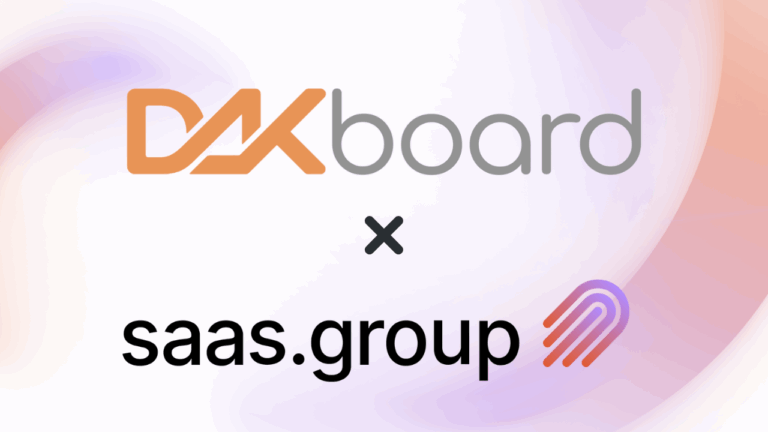Another portion of the founders’ hacks from saas.unbound podcast. This time, we share growth hacking tips from founders who have successfully tried them for their own companies. Some are pretty unconventional, while others just have to be reminded to those who are still in the early stages.
Sometimes the “hack” is not really a hack but lots of tiny strategic steps toward “an overnight success.”
Learn from SaaS founders’ experiences and discover growth hacks that propelled their companies to success. From Google ads to community building, these insights provide actionable strategies for your SaaS journey.
“I would highly encourage every founder to test their product with Google ads. Ranking your content takes too much time. You have to write it, build backlinks, and with videos, you have to have your studio, record it, cut it, upload it, et cetera. But do you have to do all that?
With Google Ads, you have the possibility to just put traffic on your page, right? You just buy it, and then there’s traffic. And we did that with Audiocado. At that point, we had subscribers, but not anything significant. And then I bought Google ads, and it took off. We got our hockey stick growth.
And, of course, it’s expensive. But time is also money. So, before spending a year on content and hoping that someone gives you some SEO love, you can just put the money to good use.
Test your offer or whatever you have with a simple Google ad.”
Julian Weber @Storrito/Audiocado – episode #27
“One of the key growth factors for me, as a CEO, in the last five and a half years was really documenting everything. And then I could lead by example, by saying, You know what? This is the reason I’m at the level I’m at today. And, obviously, the road is still long ahead. I have a lot of things to learn and many things to improve. But the road I took was through content creation, and you can do the same.”
Guillaume Moubeche @lempire – episode #24
“My hack? I do no sales; I do no marketing. The only marketing I really do is go to RubyConf, go to RailsConf, and put my face out to the developers who go to those conferences. I financially sponsor some of the parties there and that sort of thing.
But I don’t do any advertising. I don’t do any commercial blog posts that are just outright advertisements. The only marketing I do is build an amazing project, and then I document what I do.
I’ll publish blog posts about a new feature and something interesting I’ve learned. Or here’s something cool I built in Sidekiq this week. So, talking about what I do and the features that I built is essentially the only marketing I do.”
Mike Perham @Sidekiq – episode #21
“Doing things that don’t scale, like our Marketing Measurement Matters live podcast. We have managed to invite some really awesome guests from the industry. We’re getting recognized in the industry with a range of experts that we find useful to work with. And we can use it to send it to potential clients.
One of the guests that we had was co-authoring a Harvard Business Review article about the future of marketing measurement and optimization. Having him on the podcast gives us the credibility that he has. And we can then use the videos to send to potential clients that are interested in these topics to show that we really know what we’re doing.
One key aspect of this is consistency. You won’t get many viewers at first; it will be in single digits. But just keep going. Consistency pays off with all content marketing things, I guess.”
János Moldvay @adtriba – episode #17
“I don’t think there is one hack that always works. Unfortunately, most hacks have limited life cycles.
But speaking of growth, what I found exceptionally beneficial for Walls.io is to do partnership programs. And partnership programs can be on the distribution side or product integrations, like making sure that your app is connected and integrates well with other platforms that are in a similar space.
Building a partnership program was very crucial for our growth in the last two or three years. And it’s something that I don’t see as a hack, but something that I also wish I would have started a little bit earlier.”
Michael Kamleitner @Swat.io – episode #11
“I mean, to be honest, we all believe that the Product Hunt launch is going to kick things off because we saw it do it to Notion and Figma. But I believe the most important thing with products and launches is the launch itself.
You put it out there, and you’re forced to show something for it. You need to do the marketing around it. You need to create the right copy. And I think that’s the most important part of launching on Product Hunt. You care about the things you put out there because people are going to look and judge. But it could be launched anywhere, really.”
Mehdi Boudoukhane @Cycle – episode #19
“So that is one “long-term hack” that I’ll share because you need to do fundamental things to build a sustainable business.
For me, if I’m starting a business all over again, I will build my community on day one. And you have to be honest and transparent with your community. Sometimes that means writing about things you’re not comfortable writing about.
For example, in our case, we tried to run Facebook ads. And I shared how we spent a few thousand dollars on Facebook ads and how we just lost the money. A lot of people came to us just because of that post and told me what I should’ve done differently.
Like that, we found the right person to do it for us.
So, I think building a community and being open about sharing your failures actually helps you connect with people.”
Neeraj Agarwal @Pabbly – episode #2
Growth in the competitive B2B SaaS landscape requires creativity. But creativity doesn’t mean running expensive ads or spending huge budgets on questionable campaigns. It mostly means getting out there to test and assess the results as fast as possible, especially in the early stages.
There are a lot more hacks to share from saas.unbound. And there’s not one that fits all. But trying them out and seeing what your target audience responds to best is what you should definitely do to take your tiny steps to “an overnight success.”
Table of Contents
Weekly newsletter
No spam. Just the latest news and articles from the world of SaaS and Acquisitions.




